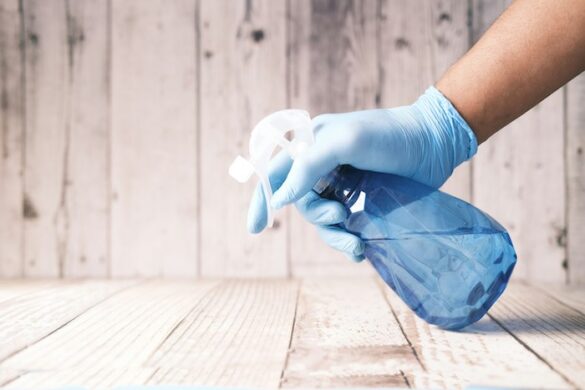Does Hydrogen Peroxide Get Rid Of Mold? The Ultimate Guide to Cleaning Mold with Hydrogen Peroxide
Mold is a common issue for many homeowners. It is an opportunistic organism that…
Examples of Mold Lawsuits
Yes, you may file a lawsuit if you get sick from mold exposure. The likelihood of successful litigation depends on certain factors that should be discussed with a lawyer to see if your case should proceed to court. Some things to take into consideration for a case concerning mold:
I Have Mold in my Rental!
A Common Problem The most common issue we encounter here on MoldBlogger is the…
Should You Test for Mold when Buying a House?
Is it Important to Test a House for Mold Before Buying? Yes, it is…
Sick Building Syndrome: Causes, Symptoms, and Prevention
Sick Building Syndrome (SBS) is a condition that can cause people to experience symptoms…
The HVAC System and Mold Prevention
Mold is a prevalent problem in homes and buildings and it can cause serious…
The 5 Levels of Mold Remediation
What are the 5 levels of Mold Remediation? The 5 levels of mold remediation…
Mold on Skin: Causes, Symptoms & Treatment
Mold Grows on Skin?
Why not? Skin is made of biodegradable material just like couches, carpet, or sheet rock – so why then would skin be immune to mold growth?
However, mold growth on skin is considerably more dangerous than dealing with mold contamination on last night’s dinner or on your shower tile.
Mold Removal Cost – What You Can Expect To Pay
If you have found mold in your home, you are most likely wondering how…
Chronic Inflammatory Response Syndrome (CIRS): What You Should Know
Chronic Inflammatory Response Syndrome (CIRS) is a condition resulting from biotoxin exposure. This immune…
How to Check Your House for Mold
Mold is everywhere, and it is a prevalent problem in homes and can cause…
6 Reasons to Buy a Dehumidifier
Investing in our home and health can have extremely beneficial results, especially long-term. While…
What are Mycotoxins?
Mycotoxins are the secondary metabolites released by fungi which are toxic and can cause…
What is Mold and How is it Different than Mildew?
You see something strange and unsightly on the surfaces in your home and immediately your mind starts questioning what it is and how to get rid of it. Is it mold? Is it mildew? What is mold anyway and how is it different than mildew? How does one clean or get rid of mold or mildew? Are mold and mildew the same thing?
How to Clean Mold From Wood
Wood is exceptionally vulnerable to mold because it is made up of a deeply penetrable and fibrous material that easily absorbs moisture.
Black Mold Symptoms in the Elderly
Black mold is a serious problem for people of all ages, but for the elderly—who have a more vulnerable immune system—it could very well be much worse, especially if the early warning signs aren’t easily recognized by the victims or their caretakers.
Black Mold Symptoms in Babies
When a baby breathes in mycotoxins (the toxic substance produced by mold spores), the blood vessels in the baby’s lungs are weakened, potentially causing pulmonary hemorrhaging—bleeding within the baby’s lungs. The more exposure a baby has to mold, the more likely he or she will develop a chronic or even life-threatening condition.
Soft or Hard: Which Moldy Cheese is Safe to Eat?
When mold appears on food, it typically means that you should throw it out. However, that may not always be the case with cheese.







